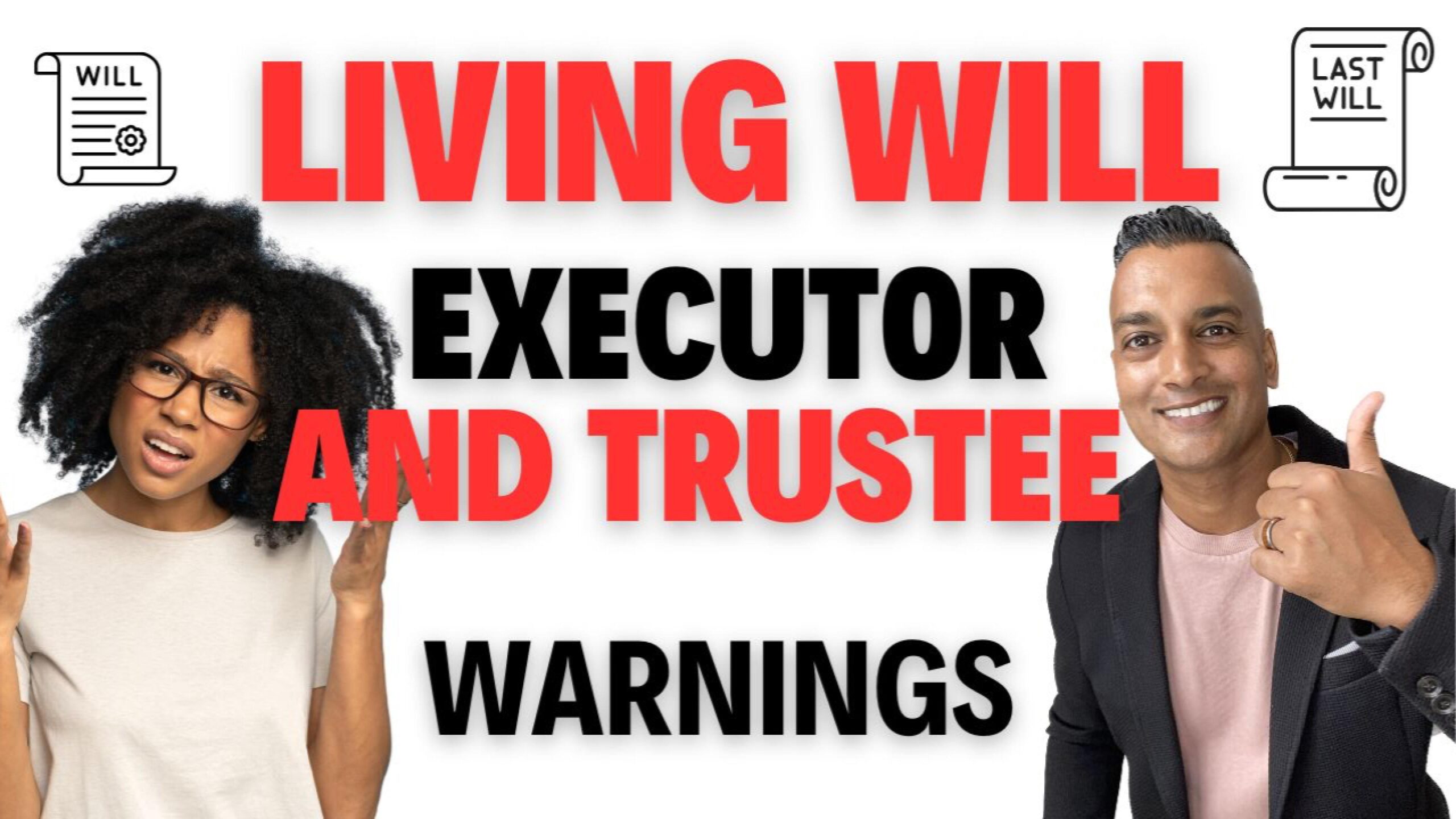Table of Contents
How to be an executor or trustee of a will in Canada
Today, we’re diving into an important topic: what you need to do to become the executor and trustee of a will in Canada. Whether you’ve been asked to take on this role or you’re considering who to appoint in your own estate plan, this video will guide you through the entire process.
Understand the Role.
An executor is responsible for carrying out the terms of a will, while a trustee manages any ongoing trusts created by the will. These roles are often combined but come with significant legal, financial, and administrative responsibilities. Before you accept, make sure you understand what’s expected of you.
Key Duties Include:
- Locating the will.
- Arranging the funeral.
- Applying for probate if needed.
- Managing and distributing the estate.
- Handling taxes and legal obligations.
Being an executor and trustee requires organizational skills, financial know-how, and a clear understanding of the deceased’s wishes.
Step 1: Confirm Your Appointment
Confirm Your Appointment.
You can’t assume the role of executor or trustee unless the will explicitly names you. Once named, it’s up to you to formally accept the responsibility. If you’re unsure or unwilling, you can decline or renounce your role, but it’s best to do this early in the process to avoid complications.
If you accept, you may need to prove your appointment by obtaining a Certificate of Appointment, commonly known as probate, in your province or territory.
Step 2 : Gather Documents and Notify Stakeholders
Start by locating the original will and identifying all key stakeholders, such as beneficiaries and creditors. You’ll also need:
- The deceased’s identification and death certificate.
- Bank and financial statements.
- Any outstanding bills or debts.
Notify beneficiaries and provide them with the necessary updates throughout the process. Transparency is key to avoiding disputes.
You’ll also need to notify institutions like banks, insurance companies, and government agencies, such as Service Canada, to stop payments like CPP or OAS.
Step 4: Apply for Probate
Not all estates require probate, but if the deceased owned significant assets or real estate, you’ll likely need it. Probate is the court’s way of confirming that the will is valid and that you have the authority to act as executor.
The process involves submitting the will, death certificate, and an application to your provincial court, along with any required fees. Once granted, you’ll receive a Certificate of Appointment of Estate Trustee.
Step 5: Administer the Estate.
Now comes the heavy lifting. This includes:
- Paying outstanding debts and taxes.
- Filing the deceased’s final tax return.
- Distributing assets according to the will.
You may need to sell property, transfer ownership, or manage investments. Keep detailed records of every transaction to protect yourself and ensure transparency.
If the will establishes a trust, your role as trustee begins here. You’ll manage the trust assets and ensure distributions are made according to the trust’s terms.
Step 6: Seek Professional Help.
Don’t hesitate to seek assistance. Lawyers, accountants, and financial advisors can provide valuable guidance, especially for complex estates. Remember, you can charge a fee for your services as executor, so use it wisely to ensure everything is handled properly.
Risks and Warnings
Before we wrap up, let’s talk about the risks and warnings associated with being an executor and trustee. While it’s an honor to be entrusted with this responsibility, there are potential pitfalls you need to be aware of:
- Personal Liability: As an executor or trustee, you can be held personally liable for mistakes, such as failing to pay taxes or distributing assets incorrectly. Ensure you follow the law and seek professional advice if unsure.
- Greed: You may find some family members that feel like they are owed this money and may start making demands. They may start doing this emmediiately after the passing and the timing can cause massive issues. Others that may not be in the will might come fforward and say that they were promissed a sum of money verbally lol.
- Family Disputes: Beneficiaries may disagree with your decisions, leading to tension or even legal challenges. Transparent communication and detailed record-keeping can help minimize conflicts.
- Time Commitment: Managing an estate or trust can take months or even years, especially for complex estates. Be prepared for a significant time commitment.
- Emotional Stress: Handling a loved one’s estate can be emotionally taxing, especially if disputes arise or you’re grieving their loss.
- Financial Risk: You may need to cover upfront expenses, such as probate fees or legal costs, which are reimbursed later from the estate. Keep detailed records to ensure reimbursement.
- Legal Consequences: Mismanagement of the estate can lead to lawsuits from creditors or beneficiaries. Be diligent and seek legal guidance when needed.
By being aware of these risks and taking steps to mitigate them, you can carry out your duties effectively while protecting yourself.
Twelve mistakes executors make:
1. Executor delay.
2. Paying estate funds out too early.
3. Failing to make the portability election.
4. Not following the terms of the will.
5. Failing to supply all asset information.
6. Failing to communicate.
7. Confusing probate and nonprobate assets.
8. Not collecting estate funds in an estate account.
9. Getting help from friends instead of professionals.
10. Ignoring claims against the estate.
11. Self dealing.
12. Handling tangible assets under your own terms.
Secret To Shave 5+ Years Off Your Mortgage
Sean Rampersaud
June 19, 2025

Elmwood – West Edmonton Real Estate
Sean Rampersaud
May 22, 2025

Is Radius Financial The BEST Canadian Mortgage Lender for You in 2025?
Sean Rampersaud
May 13, 2025

Breckenridge Greens – West Edmonton Real Estate
Sean Rampersaud
May 12, 2025

Belmead – West Edmonton Real Estate
Sean Rampersaud
May 12, 2025

Aldergrove – West Edmonton Real Estate
Sean Rampersaud
May 12, 2025
Like This Article?
Share on Facebook
Share on Twitter
Share on LinkedIn
Share on Pinterest

Sean Rampersaud
Sean has been a mortgage broker in Canada for 17 years.
We have helped countless amounts of clients achieve their mortgage goals!
Call me anytime at 780-278-4847


